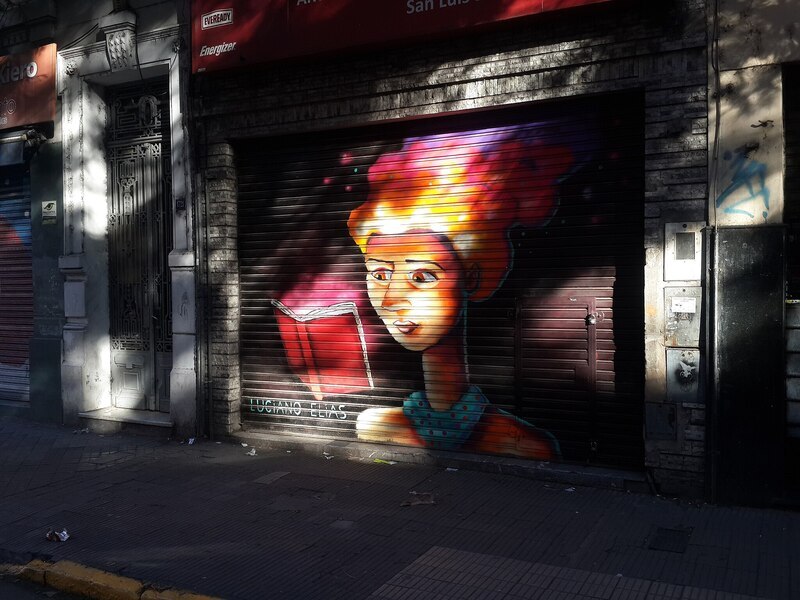SHAPE
Sharing the Pronoun.Extreme violence, social resistance and the shaping of cultural memory in Spanish American contemporary documentary poetry
Overview
SHAPE proposes a new cultural approach to the study of 21st century Spanish American documentary poetry as a form of social and community resistance in the shaping of a shared memory about extreme violence in Latin America. This is a peculiar type of poetry using in the very body of the poem a variety of ethnographic, historical (archive texts, chronicles), visual, audio-visual, and virtual documents that have not been created by the poet. The use of those texts in an intimate and non-mimetic code such as poetry determines a stylistic short-circuit that has developed, in different forms, across all Latin America.
In this context, documentary poetry has been commonly used to verbalise the tragic consequences of the systemic institutional and non-institutional forms of violence against women, migrants, indigenous or LGBTQ+ people. In spite of the key social function this poetry has assumed in Latin America in recent years, no comprehensive study has been produced on it yet. SHAPE aims to fill this gap by building a model of interpretation of documentary poetry not only as an aesthetic expression, but also as a powerful tool to preserve and construct social memory about suffering.
To that aim, SHAPE intends to adopt an interdisciplinary methodological approach involving literature, cultural studies, cultural history, and ethnography, in order to investigate how this poetry contributes to the processes of resistance to extreme violence. The aim is to generate a new cross-cultural conceptual reflection on how to view the problem of social and institutional violence in Latin America and how to use literature to resist new forms of racial and social discrimination. The project will be developed in collaboration with Ca’ Foscari University of Venice and the University of North Carolina at Chapel Hill.

Objectives
SHAPE is the first study investigating Spanish American documentary poetry about extreme violence from a cultural point of view. The overall objective is to determine the ability of this poetry to build and preserve social memory about violence by acting as a form of social and political resistance.
To that aim SHAPE will investigates the following specific objectives:
- The ontological status of documentary poetry as a form of engaged art and its political and social function. SHAPE will investigate the relationship between documentary and poetry, as well as the concept of use of factual elements, which determines the artistic dimension of documentary poetry1. Discussing those concepts will be vital to understand the crucial intertextual movement of appropriating and dis-appropriating the voice of the other.
- How this function developed in Spanish America as a tool for building a shared cultural memory about violence and shaping vulnerable subjects’ identities, such as women, migrants, indigenous, and LGBTQ+ people. From the point of view of Cultural History, the project investigates the relationship between violence, body, language and representation in order to establish how documentary poetry contributes to the construction of vulnerable subjects’ identities as well as to the urgent need for building a shared cultural memory. This specific function of documentary poetry has led to the rise of social practices outside academia, such as workshops involving the general public. From an ethnographic perspective, these represent an occasion for shared experiences of social writing.
- The stylistic peculiarities of a corpus of contemporary Spanish American documentary works in order to build a model of interpretation of 21st Spanish American documentary poetry about violence through the textual and socio-political analysis and interpretation of these works. The project will focus on how those poets use specific strategies such as intertextuality, intermediality, defamiliarization, use of archive and ethnographic sources. Such a model will demonstrate how documentary poetry is able to become a form of political practice.
Corpus
To be analysed
- Balam Rodrigo: "Libro centroamericano de los muertos", Mexico 2018. This book investigates the violence suffered by Central American migrants going to the US by formally articulating poetry as a palimpsest of colonial chronicles
- Jacqueline Goldberg: "Nosotros los salvados", Venezuela 2013. This work creates poems from the archive testimonies of Jewish refugees survivors to the Holocaust
- Viviana Ayilef: "Cautivos", Argentina 2013. This book discusses institutional violence against citizens by creating a complex intertextual network of articles from the news and products of social mobilisation
- Estefanía Ciro Rodríguez: "Artefactos explosivos inmateriales", Colombia 2018. This work comes from the author’s ethnographic studies about the resistance history of cocaleras (women working in the Colombian coca fields)
- Cristina Rivera Garza: "La imaginación pública", Mexico 2015. In this work, the author discusses violence against women using a collective work (Wikipedia pages) to describe her physical illnesses
- Luis Felipe Fabre: "La sodomía en la Nueva España", Mexico 2010. This book creates a relationship between the voice of the poems and some extracts of the Colonial Inquisition documents about tortures and executions against homosexuals
- Hugo García Manríquez: "Anti-Humboldt. Una Lectura del Tratado de Libre Comercio de América del Norte", Mexico 2014. In this book, the author tackles the problem of the social violent impact of NAFTA by using the text of the law to create a poetical counter-text, which questions the legal text by using its own language
Activities
Conferences
|
|
19-20 Jun, 2023: II International Congress “Siempre estuvimos, ahora nos pueden ver: las escritoras latinoamericanas en el canon literario actual” [SPA]
Paper presented: El cuerpo negro de la poesía. Voz y resistencia de las mujeres afroperuanas entre siglo XX y siglo XXI |
546 KB |
- 17-18 May, 2023: International Seminar “Colombia. Narrare la guerra, pensare la pace”, University of Turin. Paper presented: La coca cammina, la terra trema. Resistenze esplosive immateriali dei cocaleros del Caquetá nella poesia etnografica di Estefanía Ciro Rodríguez
- 7-8 Jun, 2023: X Annual Conference of the Italian Society for International History (SiSi). Paper presented: Testo contro testo. Il Trattato di Libero Commercio tra violenza politica e capitale: una discussione a partire dalla poesia documentale di Hugo García Manríquez
Seminars
|
|
13 Feb, 2023: Intertextualidad y poética en la obra de Cristina Rivera Garza [SPA]
Universidad de Monterrey |
218 KB |
Team
- Laura Alicino: Principal Investigator
- Luis Fernando Beneduzi: Supervisor at Ca’ Foscari University of Venice
- Oswaldo Estrada: Supervisor at the University of North Carolina at Chapel Hill
Partner

